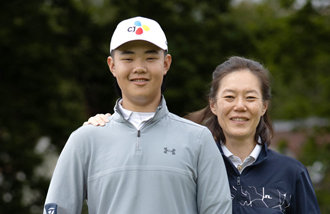Pres. Park must step in and talk with the victims of wartime sexual slavery
Pres. Park must step in and talk with the victims of wartime sexual slavery
Posted December. 30, 2015 13:40,
The agreement to settle the issues of Japans wartime sexual slavery is causing serious oppositions. On Tuesday, the Ministry of Foreign Affairs of Korea sent First Vice Minister Lim Seong-nam and Second Vice Minister Jo Tae-yeol each to the shelter in Seoul run by the Korean Council of the Women Drafted for Military Sexual Slavery by Japan and to the House of Sharing in Gwangju, Gyeonggi Province, to explain the details of the negotiations with Japan, but it only invited strong complaints from the victims. One of the victims expressed her disappointment, saying, It is out of the question that the Korean government has agreed to the accord. We did not fight so hard to settle for this kind of agreement. The opposition parties and some civic groups are also expressing strong opposition to the accord. The recent deal has been reached with the bilateral relations between Korea and Japan taken into account, but if the victims themselves are not satisfied with the results, the historical significance of the deal will only diminish.
The agreement was immediately welcomed by some nations such as American, Britain and Germany, and it received a positive evaluation from UN Secretary-General Ban Ki-moon. However, the critical point of view still remains that Japan has not admitted to any legal responsibility regarding the issue. Some news reports focused on the role that the U.S. played behind-the-scenes to induce the agreement. Be that as it may, the accord reached between Korea and Japan would not be enough to change the perspective of the international community on wartime crimes and crimes against humanity.
The victims of sexual slavery are questioning Japans sincerity, citing that the Japanese government issued the apology indirectly through Japanese Foreign Minister Fumio Kishida instead of having Prime Minister Shinzo Abe apologize to the victims through a spoken statement. In December 1970, Willy Brant, the then prime minister of West Germany, knelt before the monument erected for the Jewish victims in Warsaw and apologized for the holocaust, the massacre committed by the Nazis. If Abe had shown a more proactive gesture, he would have been able to send a much stronger message to the entire world. When the two parties were close to clinching a settlement deal during the Lee Myung-bak administration, a clause was included that the apology note of the Japanese prime minister shall be delivered by the Japanese ambassador in Korea directly to the victims. It is natural for us to expect such level of effort to be made on the part of the Japanese government.
The criticism is harsh in particular as the agreement says the settlement of the issue will be final and irreversible and (the parties involved) shall refrain from criticizing or denouncing each other regarding the issue in international settings such as the United Nations. Even if the governments have decided not to raise any diplomatic issue out of the matter, it will be impossible to prevent the civil society raising the issue. The incorporation of the data regarding the victims of wartime sexual slavery into UNESCO or the construction of the Peace Statutes are also being pursed on a private level. While Foreign Minister Yun Byung-se mentioned the removal of the statue in front of the Japanese embassy in Seoul, the Korean government will only be allowed to have consultations with Korean Council of the Women Drafted for Military Sexual Slavery by Japan, but it cannot force to remove the statue.
When President Park Geun-hye had her first summit meeting with Abe on November 2, she emphasized that the issue over the victims of wartime sexual slavery must be quickly resolved in a way that the results can be accepted by the victims as well as the Korean people. President Park may think that the results of the agreement lived up to the expectations, but the victims are clearly not on the same page. It would be great if the president visited the victims in person and explain about the efforts the government had made to persuade them to accept the deal. Only when the victims and the people of Korea are satisfied with the agreement, will the two countries be able to put an end to the issue and open up a new future together.







